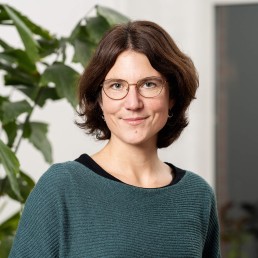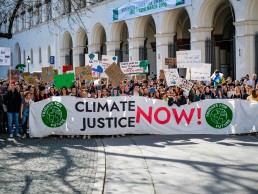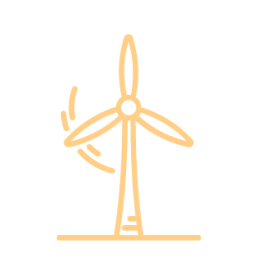Unjust inequality
“But that’s not fair!” When this phrase is used to describe something, it is often a perceived unequal distribution – for example of advantages and disadvantages or of opportunities and risks in life. Justice is a normative model. Not every inequality is automatically unjust, but injustices are often linked to inequalities. This is also the case with environmental and climate justice.
Unequal distribution of environmental pollution
Environmental justice in the narrower sense is a cross-disciplinary, integrative approach to reducing social inequalities in the areas of environment and health. This is because environmental pollution such as noise or air pollutants and access to health-related environmental resources such as green spaces are unevenly distributed. In many cities, socially disadvantaged neighborhoods and their residents are particularly affected by such burdens. This unequal distribution exacerbates existing differences in society and poses challenges for policymakers. Joint action by various stakeholders is needed to tackle the complex problems and create healthy environmental and living conditions for everyone. The environmental justice approach therefore links issues of sustainability, social justice, health and participation.
The intergenerational and global perspective of the climate crisis
In a broader and global sense, environmental justice is strongly linked to the normative concept of climate justice, which focuses on issues of justice and distribution in relation to the climate crisis. Put simply, there are dimensions of inequality that are at the heart of the climate justice debate: the temporal and spatial dimensions. Both are about the fact that one side benefits unequally from the fact that it emits greenhouse gases and (has) consumed resources, but transfers the negative risks that this creates primarily to others. From a temporal or intergenerational perspective, this becomes very clear: future generations will have to deal particularly severely with the negative consequences of anthropogenic climate change and biodiversity loss, for which they themselves are not responsible. Because these consequences have been caused by past and present generation(s). Shouldn’t we, as the current generation, instead ensure that future generations have sufficiently good, or compared to us, similar or even better environmental and living conditions? How can we contribute to structural changes accordingly?
From a global perspective, this inequality between those who cause or profit from climate change on the one hand and those who are particularly affected by the negative consequences on the other can also be observed. As the main polluters, industrialized and emerging countries have a special ethical responsibility to massively reduce greenhouse gas emissions, prevent the irreversible triggering of possible tipping points in the Earth’s climate system and counteract the consequences of climate change. This also means supporting particularly vulnerable groups, which are often found in the so-called Global South, to ensure that their human rights guaranteed entitlements to an adequate standard of living are not undermined. Climate justice therefore focuses on various dimensions of justice and combines human rights with climate protection. International, intergenerational and intra-societal levels of justice are considered.
Our work for environmental and climate justice
Through various educational projects, we work with children and adults to explore the various dimensions of the climate crisis and climate justice, provide recommendations for action and project ideas, promote awareness and a change of perspective in the spirit of global learning and formulate key demands for policymakers. Through its work, UfU is committed to promoting environmental justice at both local and national level, improving governance processes and strengthening civil society ‘s opportunities to participate in relevant political decision-making processes. In addition, UfU supports the work of NGOs in the field of global and intergenerational climate justice, in particular through applied research and advice on climate complaints.
Contact person

Larissa Donges
Climate protection & transformative education
Dipl. Geoecologist
Head of department
Telefon: +4930 4284 993 39
Email: larissa.donges@ufu.de
Publications
Nothing found.
… all publications in this subject area
Current UfU projects in this field:
Wir erstellen digitale Lehrmaterialien für die 17 Nachhaltigkeitsziele der Vereinten Nationen.
Environmental justice is a socio-ecological bracket that is moving more and more people in cities and countries. Especially in times when it can no…



















